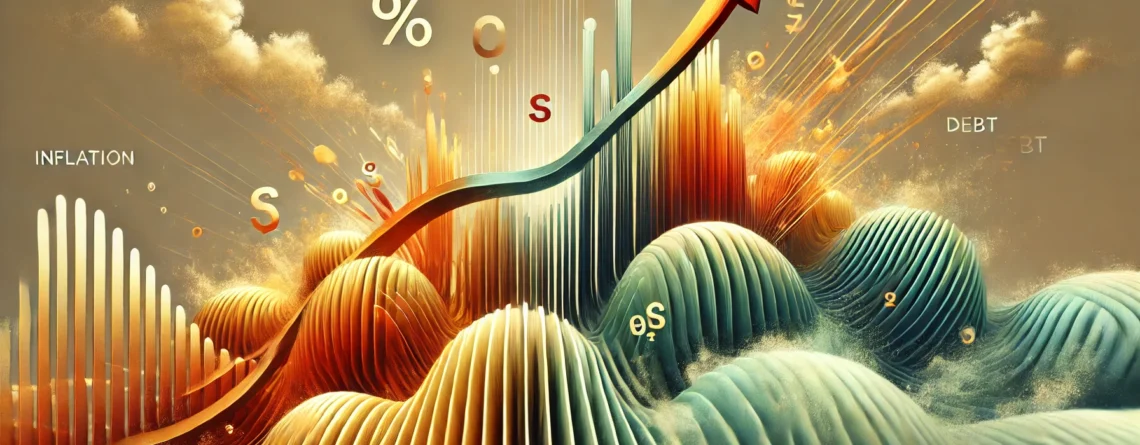How does inflation benefit debtors?
Inflation can be a double-edged sword, affecting borrowers and lenders differently. While inflation can increase the cost of living, it can also have a positive impact on debtors. In this article, we explore two ways that inflation benefits debtors and why taking on debt to protect against inflation may be a wise investment strategy. We also examine how debt makes us feel and why investors may be hesitant to use debt as an inflation hedge. Finally, we look at who benefits during times of hyperinflation and how debtors and governments can come out ahead.
How debtors benefit from inflation:
Inflation reduces the real value of debt: Inflation reduces the purchasing power of money over time, so the nominal amount of debt stays the same, but the real value of the debt decreases. This means that borrowers can repay their debt with money that is worth less in real terms, which can help reduce the burden of debt.
Inflation can benefit debtors with fixed-rate loans: Debtors with fixed-rate loans can benefit from inflation if the interest rate on their loans does not increase with inflation. In this case, inflation reduces the real interest rate on their loans, which can make it easier for them to repay their debts.
How does debt make us feel?
It is possible that investors may feel uncomfortable taking on debt to protect themselves from inflation, especially if we are used to thinking of debt as a liability rather than an asset.
Having a mortgage on our home, might be one of the best ways for investors to shield ourselves from the ravages of inflation. Oddly, paying off our mortgages might make us more vulnerable to inflation.
Historically, who benefits during times of Hyperinflation?
There were some groups that benefit from hyperinflation. These include:
Debtors: Hyperinflation reduces the real value of debts, which means that those who owe money, such as farmers, homeowners, and small business owners, could pay off their debts with less valuable currency. This gave debtors a significant advantage over lenders.
The government: Highly indebted governments benefit from hyperinflation because they can pay off their debts with cheaper currency. The government can “monetize” its debt, essentially printing more money to pay its bills.
Conclusion
Inflation can have a significant impact on debtors, reducing the real value of debt and making it easier to repay loans with less valuable currency. Debtors with fixed-rate loans can also benefit from inflation, as the real interest rate on their loans decreases over time. While taking on debt to protect against inflation may feel uncomfortable, it can be a smart investment strategy in certain circumstances.
However, it is essential to understand the potential risks and benefits and consult with financial advisors before making any investment decisions. Finally, we note that while hyperinflation can have devastating effects on the economy and society, some groups, such as debtors and highly indebted governments, may benefit from the lower real value of debts.


Comment (1)
[…] Click Here to read another post we wrote about Inflation & Debtors. […]
Comments are closed.